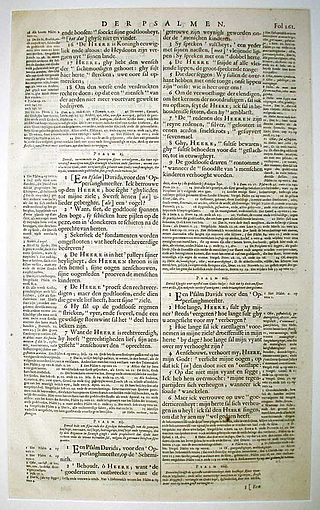Laetentur Caeli may refer to:
- The final verses of the Latin version of Psalm 96
- The final verses of the Latin version of Tollite Hostias in Oratorio de Noël by Camille Saint-Saëns.
- The Bull of Union with the Greeks issued by Pope Eugene IV in 1439
Laetentur Caeli may refer to:

Caelum is a faint constellation in the southern sky, introduced in the 1750s by Nicolas Louis de Lacaille and counted among the 88 modern constellations. Its name means "chisel" in Latin, and it was formerly known as Caelum Sculptorium ; it is a rare word, unrelated to the far more common Latin caelum, meaning "sky", "heaven", or "atmosphere". It is the eighth-smallest constellation, and subtends a solid angle of around 0.038 steradians, just less than that of Corona Australis.
Act of Union may refer to:

Queen of Heaven is a title given to the Virgin Mary, by Christians mainly of the Catholic Church and, to a lesser extent, in Anglicanism, Lutheranism, and Eastern Orthodoxy. The title has long been a tradition, included in prayers and devotional literature and seen in Western art in the subject of the Coronation of the Virgin from the High Middle Ages, long before it was given a formal definition status by the Church.
The Metropolis of Moscow and all Russia was a metropolis that was unilaterally erected by hierarchs of the Eastern Orthodox Church in the territory of the Grand Duchy of Moscow in 1448. The first metropolitan was Jonah of Moscow; he was appointed without the approval of the Ecumenical Patriarch of Constantinople. The metropolis split from the Metropolis of Kiev and all Rus' because the previous metropolitan — Isidore of Kiev — had accepted the Union of Florence. Seventeen prelates succeeded Jonah until Moscow's canonical status was regularised in 1589 with the recognition of Job by the Ecumenical Patriarch. Job was also raised to the status of patriarch and was the first Patriarch of Moscow. The Moscow Patriarchate was a Caesaropapist entity that was under the control of the Russian state. The episcopal seat was the Dormition Cathedral in Moscow.
The Sanctus is a hymn in Christian liturgy. It may also be called the epinikios hymnos when referring to the Greek rendition and parts of it are sometimes called "Benedictus". Tersanctus is another, rarer name for the Sanctus. The same name is sometimes used for the Trisagion.
"O Come, All Ye Faithful", also known as "Adeste Fideles", is a Christmas carol that has been attributed to various authors, including John Francis Wade (1711–1786), John Reading (1645–1692), King John IV of Portugal (1604–1656), and anonymous Cistercian monks. The earliest printed version is in a book published by Wade. A manuscript by Wade, dating to 1751, is held by Stonyhurst College in Lancashire.

The Introit is part of the opening of the liturgical celebration of the Eucharist for many Christian denominations. In its most complete version, it consists of an antiphon, psalm verse and Gloria Patri, which are spoken or sung at the beginning of the celebration. It is part of the proper of the liturgy: that is, the part that changes over the liturgical year.
"Tantum ergo" is the incipit of the last two verses of Pange lingua, a Medieval Latin hymn generally attributed to St Thomas Aquinas c. 1264, but based by Aquinas upon various earlier fragments. The "Genitori genitoque" and "Procedenti ab utroque" portions are adapted from Adam of Saint Victor's sequence for Pentecost. The hymn's Latin incipit literally translates to "Therefore so great".

"Regina caeli" is a musical antiphon addressed to the Blessed Virgin Mary that is used in the liturgy of the Roman Rite of the Catholic Church during the Easter season, from Easter Sunday until Pentecost. During this season, it is the Marian antiphon that ends Compline and it takes the place of the traditional thrice-daily Angelus prayer.
The Benedicite is a canticle that is used in the Catholic Liturgy of the Hours, and is also used in Anglican and Lutheran worship. The text is either verses 35–65 or verses 35–66 of The Song of the Three Children. Newer versions often omit the final verse, and may reduce the number of occurrences of the refrain "sing his praise and exalt him for ever".
A responsory or respond is a type of chant in western Christian liturgies.

"Black Magic Woman" is a song written by British musician Peter Green, which first appeared as a single for his band Fleetwood Mac in 1968. Subsequently, the song appeared on the 1969 Fleetwood Mac compilation albums English Rose (US) and The Pious Bird of Good Omen (UK), as well as the later Greatest Hits and Vintage Years compilations.

Psalm 148 is the 148th psalm of the Book of Psalms, beginning in English in the King James Version: "Praise ye the Lord from the heavens". In Latin, it is known as "Laudate Dominum de caelis". The psalm is one of the Laudate psalms. Old Testament scholars have also classified it as a creation psalm and a wisdom psalm.
Caeli may refer to :

Psalm 10 is the tenth psalm of the Book of Psalms, beginning in English in the King James Version: "Why standest thou afar off, O LORD? why hidest thou thyself in times of trouble?" In the Greek Septuagint and the Latin Vulgate, it is not an individual psalm but the second part of psalm 9, "Ut quid Domine recessisti". These two consecutive psalms have the form of a single acrostic Hebrew poem. Compared to Psalm 9, Psalm 10 is focused more on the individual than the collective human condition.

Psalm 19 is the 19th psalm in the Book of Psalms, beginning in English in the King James Version: "The heavens declare the almighty of God; and the firmament sheweth his handywork." In the slightly different numbering system used in the Greek Septuagint and Latin Vulgate translations of the Bible, this psalm is Psalm 18. The Latin version begins "Caeli enarrant gloriam Dei". The psalm is attributed to David.

Psalm 96 is the 96th psalm of the Book of Psalms, a hymn. The first verse of the psalm calls to praise in singing, in English in the King James Version: "O sing a new song unto the Lord". Similar to Psalm 98 and Psalm 149, the psalm calls to praise God in music and dance, because he has chosen his people and helped them to victory. It is one of the royal psalms praising God as the King of His people.
Laetentur Caeli: Bulla Unionis Graecorum was a papal bull issued on 6 July 1439 by Pope Eugene IV at the Council of Ferrara-Florence. It officially reunited the Catholic Church with the Eastern Orthodox Church, temporarily ending the East–West Schism; however, it was repudiated by most eastern bishops shortly thereafter. The incipit of the bull is derived from Psalms 95:11 in the Vulgate Bible.
The Third Sunday of Easter is the day that occurs two weeks after the Christian celebration of Easter.
The Metropolis of Kiev, Galicia and all Rus' was a metropolis of the Ecumenical Patriarchate of Constantinople in the Eastern Orthodox Church that was erected in 1441. The canonical territory was the western part of the traditional Kievan Rus' lands — the states of the Grand Duchy of Lithuania and the Kingdom of Poland. The episcopal seat was initially in the city of Navahrudak, which is today located in Belarus; later it moved to Vilnius in Lithuania. It was disestablished in 1595/6 with the creation of a new ecclesial body — the Ruthenian Uniate Church.